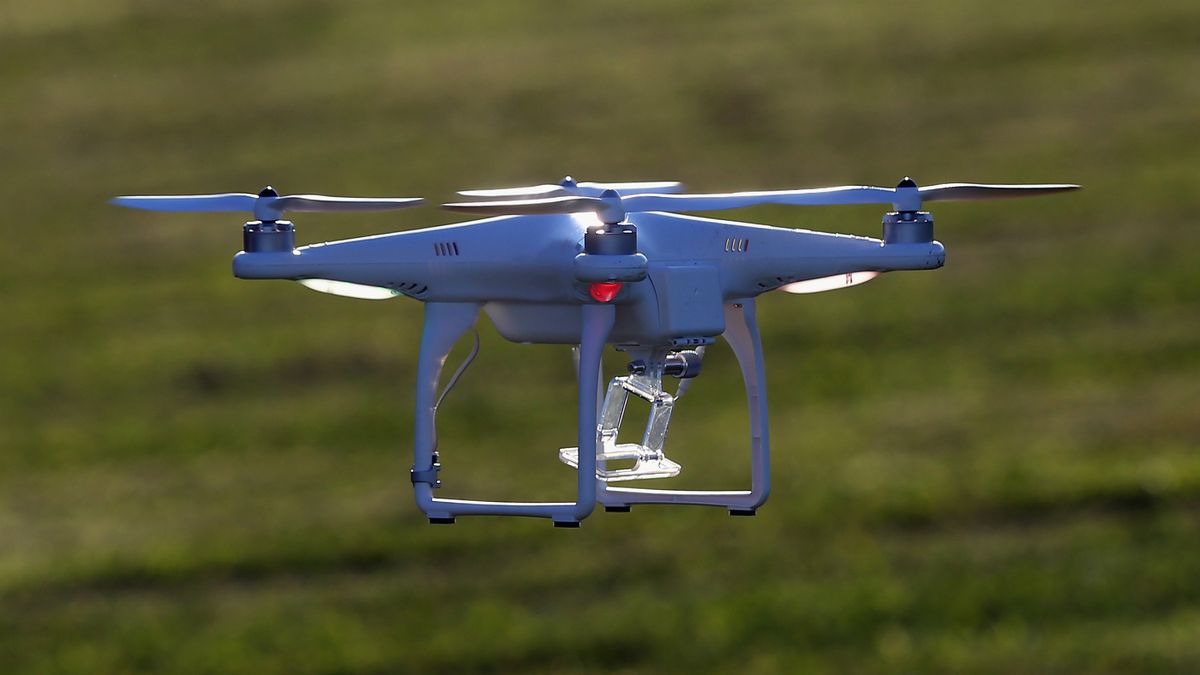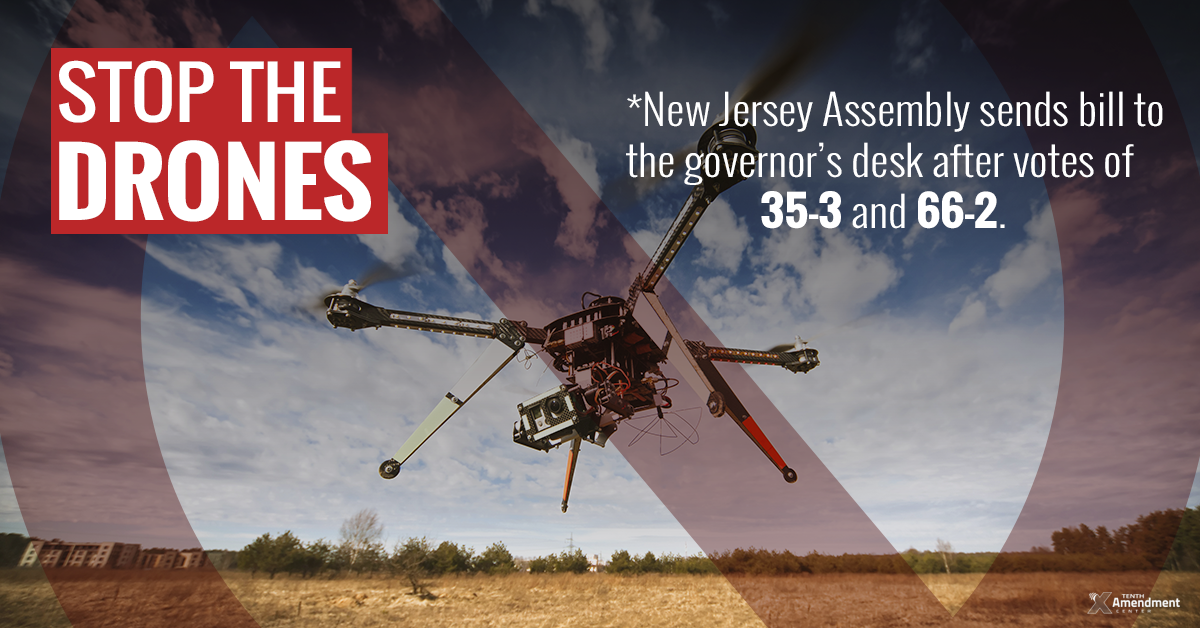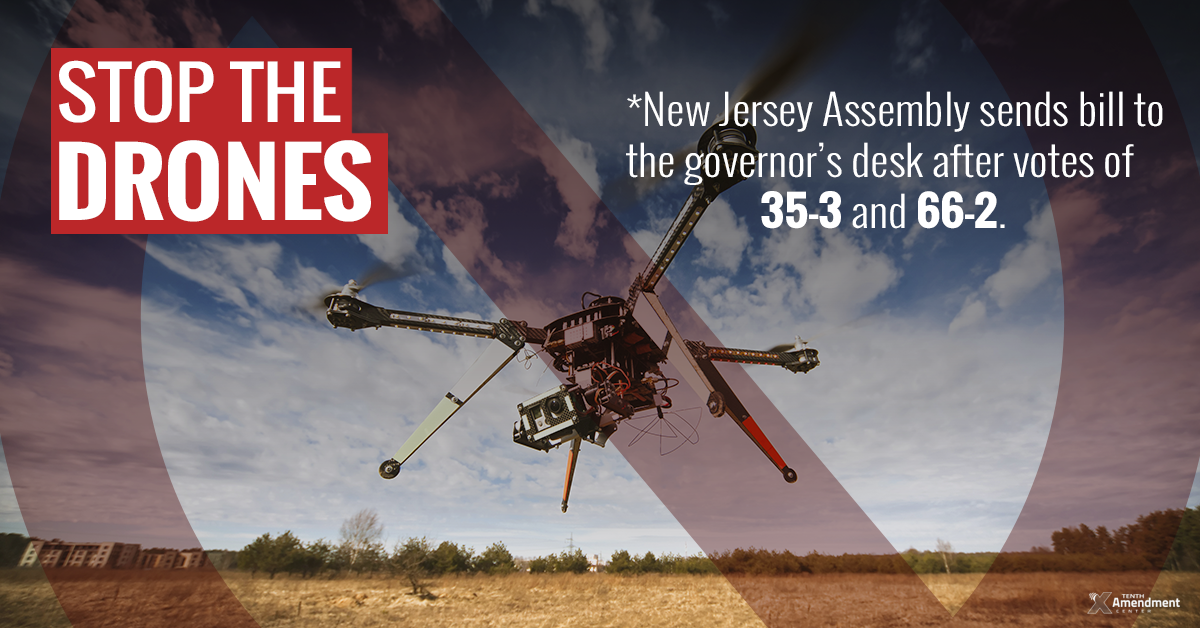Drones Over New Jersey Solved: This comprehensive analysis delves into the multifaceted impact of drone technology within the state, exploring legal frameworks, public safety applications, technological advancements, and socio-economic consequences. We examine how New Jersey is navigating the complex landscape of drone integration, balancing innovation with responsible regulation.
From addressing public safety concerns through search and rescue operations and traffic monitoring to analyzing the economic opportunities and job creation in the burgeoning drone industry, this exploration provides a detailed overview of the current state of drone usage in New Jersey and its future implications. We will also discuss the legal implications of drone use, highlighting specific case studies and comparing New Jersey’s regulations to those of neighboring states.
Public Safety Concerns Addressed by Drone Technology in New Jersey: Drones Over New Jersey Solved

The integration of drone technology into public safety operations in New Jersey is rapidly evolving, offering innovative solutions to enhance response times, improve situational awareness, and ultimately, protect lives and property. This technology provides a cost-effective and efficient means to address various public safety challenges previously tackled with more traditional, and often less agile, methods.
The recent concerns regarding unauthorized drone activity over New Jersey appear to be resolved. Authorities are investigating the specifics, but the capabilities of the devices involved highlight the importance of understanding the technology. For instance, many drones now include advanced features, such as those found in a drone with camera , which could easily capture high-resolution images.
Therefore, future preventative measures for drone incidents over New Jersey will need to consider these sophisticated capabilities.
Drone Use in Search and Rescue Operations
Drones equipped with high-resolution cameras and thermal imaging capabilities have proven invaluable in search and rescue missions across New Jersey’s diverse landscapes. For instance, during a nighttime search for a missing hiker in the Pine Barrens, a drone equipped with thermal imaging quickly located the individual, significantly reducing the search time and improving the chances of a successful rescue.
The ability to survey large areas rapidly, even in challenging conditions such as dense forests or rough terrain, offers a significant advantage over ground-based searches alone. This aerial perspective allows rescuers to identify potential hazards and plan safer, more efficient rescue routes.
Drones in Traffic Monitoring and Accident Prevention
The New Jersey State Police and local law enforcement agencies are increasingly utilizing drones to monitor traffic flow, identify accident hotspots, and respond to incidents more effectively. Real-time aerial footage provides a comprehensive overview of traffic conditions, allowing authorities to quickly assess the severity of accidents, direct emergency responders, and manage traffic flow to minimize congestion and further incidents.
The recent drone activity over New Jersey has been resolved, thankfully avoiding any major incidents. This highlights the importance of reliable, real-time monitoring, much like the impressive capabilities offered by the coquihalla weather camera , which provides crucial visual data in challenging conditions. The New Jersey situation underscores the need for similar advanced surveillance systems to ensure public safety and efficient response times.
Drones can also be deployed to monitor large-scale events, such as concerts or parades, providing a bird’s-eye view to help maintain order and public safety.
Potential Risks Associated with Drone Use in Public Safety
While offering substantial benefits, the use of drones in public safety presents inherent risks. These include potential privacy violations if not used responsibly and in accordance with established guidelines. Malfunctions or loss of control of the drone during operation pose a safety hazard, potentially causing damage to property or injury to individuals. The regulatory framework surrounding drone operation needs to be robust to mitigate these risks, ensuring responsible and ethical deployment of this technology.
Additionally, there is a need for ongoing training and education for law enforcement personnel operating these drones to ensure proficiency and adherence to safety protocols.
Advantages and Disadvantages of Drones for Public Safety in New Jersey
| Advantages | Disadvantages |
|---|---|
| Improved response times to emergencies | Potential for privacy violations |
| Enhanced situational awareness in diverse environments | Risk of malfunction or loss of control |
| Cost-effective compared to traditional methods | Regulatory and legal complexities |
| Increased safety for first responders | Need for skilled operators and ongoing training |
| Improved traffic management and accident prevention | Limited battery life and operational range |
Technological Advancements in Drones and their Impact on New Jersey

The rapid evolution of drone technology is significantly impacting various sectors in New Jersey, from infrastructure inspection to emergency response. Advancements in battery life, sensor capabilities, and overall drone design are expanding operational possibilities and improving the efficiency and effectiveness of drone deployments across the state. This section will explore some key technological advancements and their consequences for New Jersey.
Improved Drone Battery Life and Operational Capabilities
Extended flight times are a crucial factor in drone utility. Increased battery life translates directly into longer operational windows for tasks such as bridge inspections, search and rescue operations, and agricultural monitoring. For instance, drones with previously limited flight times of around 20 minutes now boast flight times exceeding an hour, allowing for more comprehensive data collection in a single deployment.
This reduces the need for multiple battery changes and minimizes downtime, leading to significant cost savings and increased efficiency. Longer flight times also allow for covering larger geographical areas without the logistical burden of frequent battery swaps, particularly beneficial in remote or challenging terrains found throughout New Jersey.
Enhanced Drone Sensors and Their Applications, Drones over new jersey solved
Modern drones are equipped with a diverse array of sophisticated sensors that enhance their capabilities across multiple sectors. High-resolution cameras provide detailed imagery for construction site monitoring and infrastructure assessments. Thermal imaging cameras are invaluable for search and rescue operations, locating missing persons or detecting heat signatures in fire emergencies. LiDAR (Light Detection and Ranging) sensors create precise 3D models of landscapes, aiding in urban planning, environmental monitoring, and precision agriculture.
Furthermore, advancements in multispectral and hyperspectral imaging allow for detailed analysis of vegetation health, which is beneficial for agricultural applications and environmental monitoring in New Jersey’s diverse ecosystems.
Comparison of Drone Capabilities in New Jersey
New Jersey utilizes a variety of drones, each with its own strengths and limitations. Smaller, lightweight drones are ideal for indoor inspections or navigating tight spaces, such as inspecting the interiors of aging buildings or navigating dense forests during search and rescue missions. Larger, heavier-lift drones are employed for tasks requiring significant payload capacity, such as delivering medical supplies or transporting equipment to remote locations during emergencies.
Fixed-wing drones offer longer flight ranges and are better suited for large-scale aerial surveys, while multirotor drones provide greater maneuverability and stability for close-range inspections and precision work. The choice of drone depends entirely on the specific application and the operational requirements.
Top 5 Technological Advancements Impacting Drone Use in NJ
The advancements detailed above contribute to the overall increase in drone use within the state. However, focusing on the most significant, we can highlight five key technological advancements and their significance:
- Extended Battery Life: As discussed earlier, longer flight times drastically increase operational efficiency and reduce downtime.
- Improved Sensor Technology (High-Resolution Cameras, Thermal, LiDAR): The enhanced data collection capabilities allow for more precise analysis and informed decision-making across various sectors.
- Advanced Flight Control Systems: Autonomous flight capabilities and obstacle avoidance systems enhance safety and reduce the need for constant human intervention.
- Integration with AI and Machine Learning: AI-powered image analysis allows for automated defect detection in infrastructure inspections, significantly speeding up the process and improving accuracy.
- Enhanced Data Transmission and Processing: Real-time data streaming and cloud-based processing allow for immediate analysis and faster response times during emergency situations.
These advancements are collectively transforming how drones are used in New Jersey, leading to safer, more efficient, and cost-effective operations across numerous industries.
In conclusion, the integration of drones into New Jersey’s landscape presents both significant opportunities and considerable challenges. While advancements in technology promise enhanced public safety and economic growth, careful consideration of legal frameworks and potential social impacts is crucial for responsible and sustainable drone adoption. Balancing innovation with responsible regulation will be key to realizing the full potential of drone technology in New Jersey while mitigating any negative consequences.
FAQ Explained
What are the most common violations of drone laws in New Jersey?
Common violations include flying in restricted airspace, flying beyond visual line of sight, and failing to register drones as required.
What insurance is required for drone operation in New Jersey?
Specific insurance requirements vary depending on the purpose and type of drone operation. Consult with relevant authorities for detailed information.
How can I report unsafe or illegal drone activity in New Jersey?
Contact your local law enforcement agency to report any concerns about unsafe or illegal drone operation.
